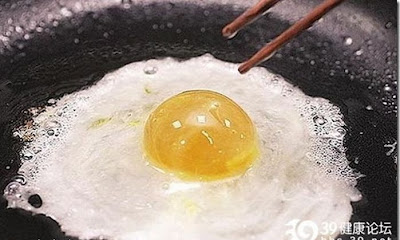An international businessman and his two deputies were jailed for 25 years yesterday for running a £340million metal trading con from a cow shed in India.
Virendra Rastogi, 39, was the multi-millionaire chief executive of a billion pound business when investigators from the Serious Fraud Office swooped in 2002 and caught him stuffing papers into his shredder.
Southwark Crown Court heard it was a 'desperate last ditch attempt' to destroy incriminating documents and distance himself from a fraud spanning six years across three continents.


Rastogi and his co-defendants Anand Jain, 42, and Guantam Majumdar, 55, invented hundreds of bogus companies and imaginary transactions to convince banks to lend them money.
Fraud investigators found the fake addresses included a cow shed in a field in India, and a laundrette in the US.
Another fake company address was the home of an an elderly lady selling scrapbooks in New Jersey.

The court heard the 324 fake firms were apparently ordering vast quantities of metal from the USA, United Arab Emirates, Hong Kong and Singapore through Rastogi's company RBG Resources PLC.
The company was founded on fraud and riddled with $600million of debt.
Judge James Wadsworth QC jailed Rastogi for nine and a half years.
Jain, dubbed the 'facilitator' of the fraud, was locked up for eight and a half years while Majumdar, once a respected banker in the City, was caged for seven and a half years.
Judge James Wadsworth QC said the 'collusion' of Rastogi's company RBG, and his brother's company in America resulted in billions of dollars being borrowed from banks all over the world.
The judge said: 'I am of the view that you Virendra Rastogi, though much younger and the junior within your family, were the real brains of the extension of the business by these fraudulent means.
'Over six years the banks were induced by your falsehoods to advance billions of dollars for trades that did not exist in any real sense.'
Judge Wadsworth said the loss to the banking system was an estimated $538million.
Rastogi enjoyed a plush existence in his exclusive Mayfair flat and pocketed a total of £4.15million in just five years, between 1996 and 2001.
In 2001, the managing director was taking home an annual salary of £650,000 while his 'deputy chief executive' Majumder earned £390,000.
At the bottom of the pecking order, Jain earned £201,000 with a bonus of £75,000.
house

Rastogi claimed this was the address of an International multi-million dollar firm but it was actually an elderly lady's home
At the end of the mammoth trial, which cost the taxpayer at least £10million, the three men were found guilty of an international conspiracy to defraud.
Rastogi followed in the footsteps of his older brother, Narendra, who is currently serving a seven-year sentence for fraud in the USA for founding an empire based on fake invoices from bogus businesses.
Creditors at financial institutions, such as German-based West LB and General Motors, were told RBG Resources gave their customers unusually long 180-day 'credit windows' before having to pay up.
The fraudsters ware granted massive loans to cover them in the interim period and RBG borrowed half its annual 'turnover.'
Rastogi, once on 'Britain's Asian Rich List', convinced the financial world of his credibility by insisting on having internationally renowned firm Pricewaterhouse Cooper as his auditors.
When RBG collapsed in May 2002, investigators struggled to trace the metal-trading customers and those that were found consisted of 'low rent local trade operations.'
The corporation unravelled when PriceWaterhouse Coopers resigned in the middle of an annual audit in 2001.
Suspicions had been raised after a number of documents purporting to be sent from six different companies all over the world were all sent from the same fax machine in Hong Kong.
Other documents appeared to be 'warm from the printer.'
The collapse of Rastogi's firm, based at 105 Piccadilly, followed the end of sister company Allied Deals based in the USA.
Allied Deals was headed by Narendra Rastogi and was built entirely built on fraud, with 95 per cent of its trading between 1996 and 2002 completely fabricated.
The discovery of this fraud lead to the conviction of Narendra and various other members of staff.














 The court heard the 324 fake firms were apparently ordering vast quantities of metal from the USA, United Arab Emirates, Hong Kong and Singapore through Rastogi's company RBG Resources PLC.
The court heard the 324 fake firms were apparently ordering vast quantities of metal from the USA, United Arab Emirates, Hong Kong and Singapore through Rastogi's company RBG Resources PLC.